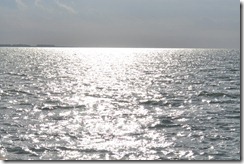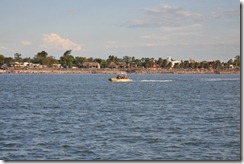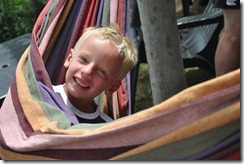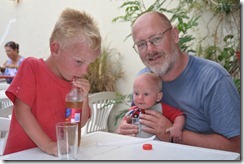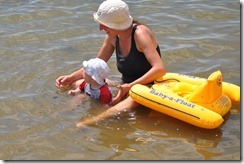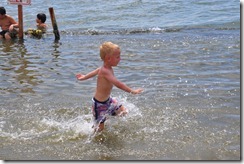I mentioned in our recent newsletter that there are some tensions associated with being English around here at the moment, which elicited some concerned responses, so I thought maybe I should flesh out the bones of that comment a little.
The history of the Falklands-Malvinas is interesting, if complex. I did some reading around it a few years ago and I keep meaning to write my notes into a coherent article, but it never quite makes the top of the to-do list. Suffice to say in terms of claims to sovereignty, history neither comes down clearly with Argentina or the UK, and regarding the present day situation, the UK’s argument re. an existing population sounds suspiciously like “squatters rights”, but equally Argentina’s argument over geography (200 kms versus several thousand) would also have Cuba as the 52nd state of the USA (being an island of a mere 80 kms off the coastline).
So, what is going on at the moment? Well the issue is hotting up. As far as I can figure out, nobody on either side of the pond believes that this is going to result in anything more than verbal handbags, but the news has been full of threats and counter-threats. This is probably due in part to the unfortunate combination of the thirty year anniversary of the 1982 invasion coinciding with president Cristina Kirchner needing to draw attention away from a raft of political difficulties here, and David Cameron being delighted by an opportunity to draw attention away from an economic crisis there. (In fact quite an uncanny parallel on both sides to the political climate which culminated in war thirty years ago).
As far as we are concerned, we aren’t being spat it in the street, no-one has set our house on fire, and I haven’t heard that any of the British in Argentina are experiencing any overt hostility. Our friends are still our friends (or they’re too polite to tell us otherwise). But there are small signs of tension, particularly among strangers; a comment from a waiter that “you people aren’t much liked around here…” (shall I take my custom elsewhere?). Or when we are asked where we come from and we say England, in less troubled times people respond positively, ask us questions, tell us about their aunt who once went to a conference in Birmingham… but at the moment saying we’re English sometimes results in a long pause while everyone wonders what to say next… I guess like I would if someone had just told me they were the Khmer Rouge.
It is a deeply ingrained issue in the national psyche, as I have been discovering of late while ploughing my way through secondary school textbooks. Not only does it have a whole article to itself in the Constitution, but it is also covered in history, geography and citizenship in most years throughout the secondary school curriculum. When I say “covered”, I mean that each subject book for each year contains a paragraph whose content can be summarised as “they’re ours because they’re ours”. And having now read my way through the entire six years right up to school leaving standard, I can definitively confirm that I have not seen any version where the issue is remotely fleshed out or founded upon any further facts or philosophy. Faced with such a level of critical discourse, our best course of action in general is to steer well clear, apart from occasionally with a very few friends with whom we are able to engage in a debate over a beer, knowing that we will still be friends at the end of it (mostly my fellow Scout leaders!)
However, the current cranking up of political rhetoric is also producing a phenomenon which we have not previously experienced; voices of dissent from within Argentina. Clearly nobody but the completely suicidal would go as far as actually questioning sovereignty, but a national newspaper La Nacion (The Nation; I have no idea who is behind this one except that they appear to be the voice of the opposition at least at the moment) has been running a bunch of pretty daring headlines over the last couple of weeks. Check out…
- this one from the 17th February Caparrós: "Mientras haya gente que sufra hambre, cualquier esfuerzo por Malvinas es obsceno" (Caparros: “While there are people who suffer hunger, any effort towards (regaining) the Falklands is obscene”)
- this one from the 21st February Malvinas: un grupo de intelectuales pide cambiar la política. Romero, Sarlo, Kovadloff y Sebreli, entre otros, instan a respetar los intereses de los isleños. (Falklands: a group of intellectuals ask to change the politics. These four, amongst others, urge respect for the interests of the islanders).
- this one from the 23rd February Beatriz Sarlo: "Las Malvinas no puede ser una cuestión nacional sagrada" La ensayista y escritora se refirió al documento que firmó junto a otros intelectuales que cuestionan la postura del Gobierno en el conflicto por las islas; "Queremos que se abra el debate", dijo. (Beatriz Sarlo: “The Falklands cannot be a sacred national question”. The essayist and writer referred to the document that she signed together with other intellectuals questioning the stance of the government on the conflict for the islands. “We want the debate to be opened”. She said.
Keep your head down, and watch this space.
